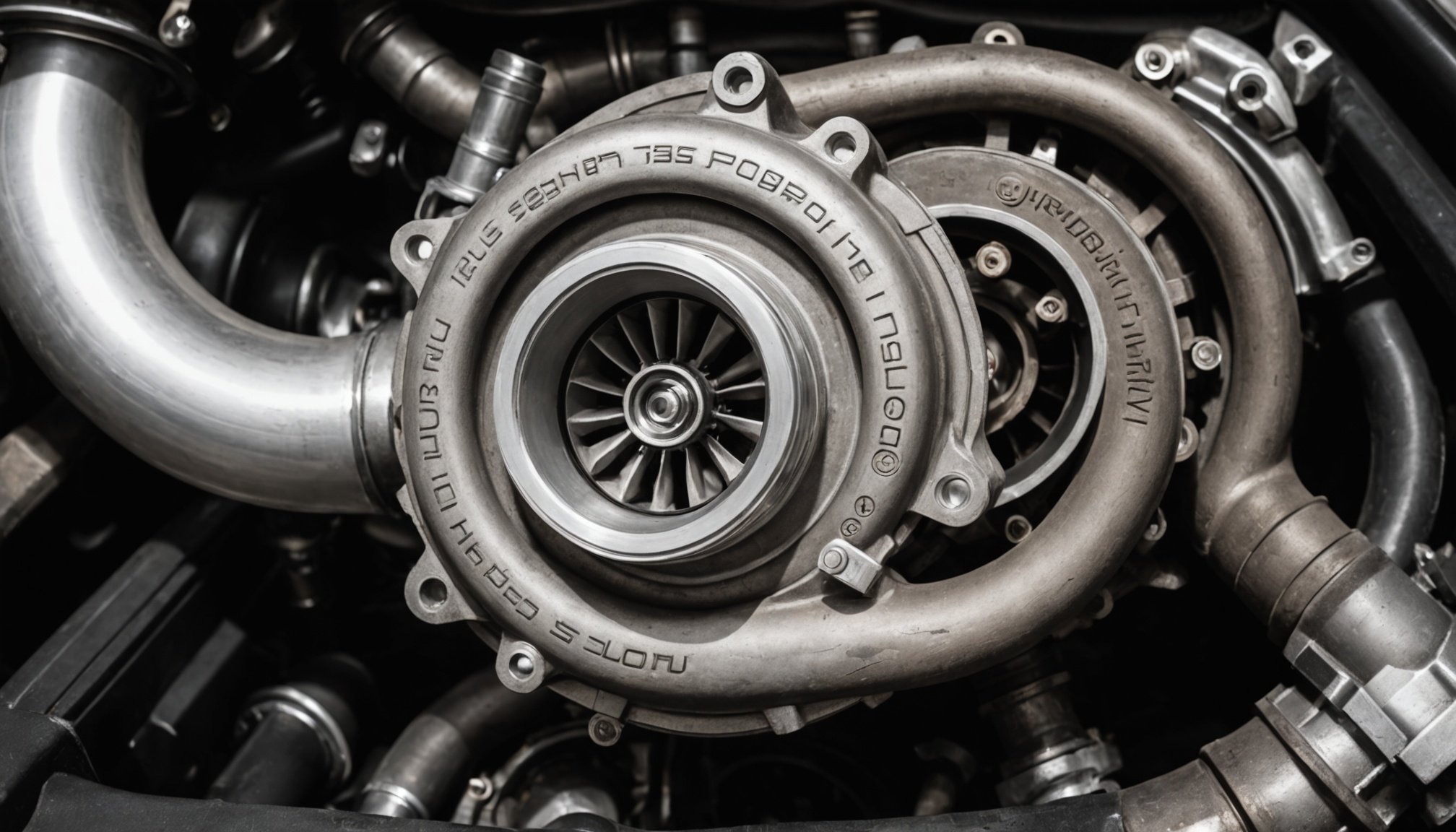Understanding Turbochargers in UK Vehicles
Turbocharging is a key method for enhancing UK vehicle performance, offering significant benefits compared to naturally aspirated engines. A turbocharger works by forcing more air into the vehicle’s combustion chamber. This results in increased power output. In a naturally aspirated engine, air intake relies solely on atmospheric pressure, limiting the amount of air that enters the engine.
Turbocharger basics involve understanding its components: the turbine, compressor, and intercooler. The turbine extracts energy from exhaust gases, which then spins the compressor. This process compresses fresh air into the engine, boosting power. Cooler, denser air is then delivered to the engine’s cylinders, enhancing combustion efficiency.
Also read : Ultimate diy manual: how to install a heads-up display (hud) in your uk car
In modern UK vehicles, turbochargers play a crucial role. They improve fuel efficiency and performance, making them preferred in both everyday cars and high-performance sports models. By boosting power without increasing engine size, turbochargers also help in achieving stricter emission standards, which is a significant benefit for motorists in the UK focusing on eco-friendly driving solutions.
Recognising and appreciating the benefits of turbocharging—like better acceleration and enhanced engine response—is essential for UK drivers interested in high performance and fuel economy.
Also read : Unlocking the sound: a comprehensive guide to personalizing the exhaust notes of your uk sports car
Essential Maintenance Practices
Achieving optimal turbocharger performance hinges on proper maintenance, ensuring longevity and efficiency. These practices are especially vital for UK drivers who rely on their vehicles for varied conditions.
Routine maintenance checks are a cornerstone of turbocharger maintenance. It’s advisable to conduct comprehensive inspections every 10,000 to 15,000 miles. This frequency helps identify issues early, reducing the likelihood of costly repairs. Additionally, ensuring high-quality oil changes is fundamental. Use synthetic oils that cater to turbocharged engines, as these maintain adequate lubrication and reduce heat buildup. Changing the oil every 5,000 miles or at least biannually is a proven method to safeguard your turbocharger.
Keeping the air filter clean is another critical aspect. Dirty filters can restrict airflow, negatively impacting your vehicle’s efficiency. Replace or clean these filters approximately every 12,000 miles. With each oil change, conduct a visual inspection to ensure cleanliness. Also, route air filters properly to sidestep potential blockages.
Engaging in these maintenance activities not only optimizes performance but also fortifies the vehicle’s resilience against environmental stresses, enhancing its overall longevity and reliability. Consistent upkeep ensures that UK motorists continually benefit from a smoothly functioning turbocharged system.
Common Turbocharger Issues and Troubleshooting
Understanding the challenges associated with turbocharger issues is crucial for maintaining peak vehicle performance. Identifying and addressing these challenges ensures the continued efficiency of your vehicle.
Identifying Signs of Turbocharger Failure
One of the initial indicators of turbocharger failure is a significant loss of engine power. When power seems sluggish or reduced, a failing turbocharger could be the culprit. Pay attention to increased oil consumption or oil leaks as these also signify potential problems.
Common Sounds Indicative of Turbocharger Problems
Distinguishing unusual sounds is a vital aspect of spotting common problems. Listen for whining noises or high-pitched hums, especially when accelerating. These sounds often relate to issues with bearings or other internal components of the turbocharger.
Diagnostic Methods for Turbocharger Issues
Monitoring boost pressure is essential for troubleshooting tips. A drop in boost pressure may indicate a malfunctioning turbocharger. Analysing exhaust smoke colours also provides insights: blue smoke suggests oil burning, while black smoke indicates excess fuel. Using diagnostic tools and software can help pinpoint issues accurately, making repairs more efficient. Adopting these troubleshooting tips helps keep your turbocharged vehicle in optimal running condition.
Performance Enhancements through Care
Ensuring turbocharger performance remains optimal requires regular maintenance and consideration of tuning options. Regular upkeep can significantly improve a vehicle’s fuel efficiency. By following efficiency tips, UK motorists can see notable gains in their vehicle’s output and longevity.
Exploring tuning options tailored for UK vehicles is beneficial. Adjustments in turbocharger settings can cater to specific driving preferences, providing a blend of power and efficiency. Popular tuning modifications might include ECU remapping or installing performance-enhanced components.
Drivers desiring enhanced vehicle dynamics should consider performance-enhancing modifications. These can include higher-capacity fuel injectors or upgraded exhaust systems. Such enhancements often result in better throttle response and increased horsepower.
Consider the benefits of both expert and DIY modifications. With comprehensive guidance, even complex adjustments become manageable. For eco-conscious drivers, prioritisation of cleaner emissions with such modifications is essential. Always verify that adjustments align with UK emissions standards.
The goal is to balance performance with environmental responsibility, ensuring that every enhancement complies with regulations. Thus, not only is performance improved, but vehicles remain eco-friendly and legally compliant, riding seamlessly on UK roads.
Compliance with UK Regulations
Navigating UK vehicle regulations is essential for any motorist with a turbocharged vehicle. One of the primary concerns is adherence to emissions standards. These standards ensure that vehicles run more efficiently while minimizing environmental impact. For turbocharged vehicles, maintaining compliance is crucial, as these engines typically produce higher levels of emissions. Understanding these regulations and ensuring your vehicle meets them can prevent legal issues and contribute to eco-friendly driving.
Emissions standards require that a vehicle’s exhaust emissions remain within set limits. It is important for owners to conduct regular emissions tests, ensuring their vehicle continues to meet these criteria. Failure to do so can result in penalties or restricted use in certain areas.
Legal considerations also extend to modifications. While enhancing performance can be appealing, you must verify that any modifications do not compromise vehicle compliance. Adjustments that may change exhaust outputs or the vehicle’s structure should be carefully assessed. Conforming to these guidelines preserves both vehicle integrity and legality, guaranteeing you enjoy both optimum performance and adherence to environmental requirements on UK roads.
Recommended Products and Resources
In the realm of turbocharger products, selecting the right tools and parts is crucial for optimal performance. This section delves into recommended maintenance resources and product recommendations, specifically for UK motorists looking to enhance their vehicle’s resilience.
Top Oil Brands for Turbocharged Engines
Ensuring proper lubrication is paramount. Brands such as Mobil 1, Castrol Edge, and Shell Helix are known for their high-quality synthetic oils, which are perfect for turbocharged engines. These oils offer superior heat resistance and maintain engine cleanliness, crucial for performance longevity.
Recommended Air Filters for Optimal Performance
A clean air filter is vital for optimizing performance. Brands like K&N Filters and Bosch provide reliable and efficient air filters that can significantly enhance air flow, preventing dirt from entering the engine and ensuring the turbocharger operates smoothly.
Useful Tools for Turbocharger Care
For efficient turbocharger maintenance, investing in quality tools can make a difference. Diagnostic tools such as OBD2 scanners can help monitor engine parameters and boost pressure, aiding in identifying potential issues early. Brands like Autel and BlueDriver offer user-friendly tools for both professional mechanics and DIY enthusiasts, ensuring reliable care and effective troubleshooting.











